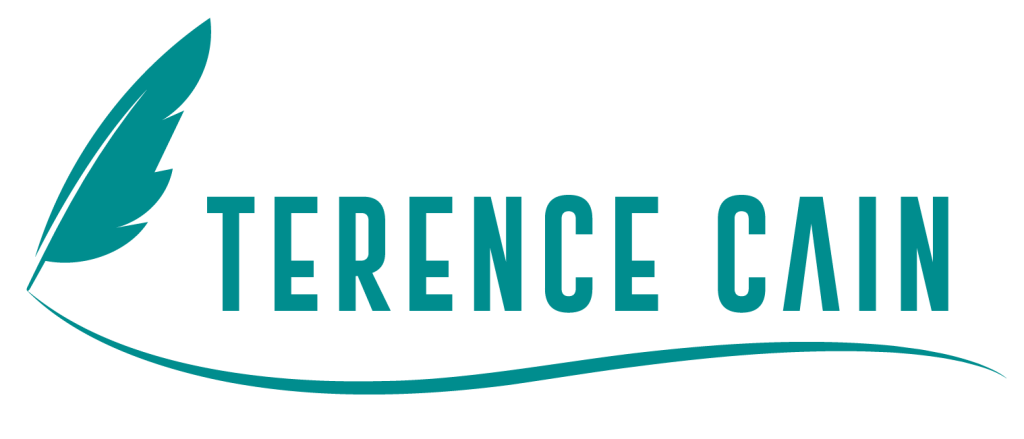- Prologue
- Speak Your Mind
By Terrence Cain

Negotiation Skills & and Knowing How to Respond
In the depths of a seemingly satisfying existence, a shadow of discontent silently lingers. While others bask in admiration and happiness, an internal void gnaws at the very core. It’s time to break free from the shackles of people-pleasing and find the courage to embrace your own desires.
You’ve become a master at bringing joy to others, but what about your own happiness? It’s high time to prioritize yourself and rediscover the things that genuinely make your spirit soar. Saying “yes” to everything drains your energy and stifles your potential. It’s time to say “no” to the things that don’t align with your true passions and aspirations.
You owe it to yourself to negotiate and demand what you truly deserve. Don’t settle for less when you know deep down you’re worth so much more. It’s time to reclaim your sense of self and stand up for what truly fulfills you.
Embrace the power of authenticity and let your voice be heard. Don’t be afraid of ruffling a few feathers along the way. Those who truly care about you will understand and support your journey. Remember, you can’t pour from an empty cup. Take the time to care for yourself, nurture your own happiness, and watch as it overflows into the lives of those around you.
Believe in your own worth and step into the light of self-satisfaction. You have the strength within you to create a life that is not only pleasing to others but fulfilling for yourself. Embrace this transformation and let the world witness the beauty that shines from within when you dare to live your truth.
Life is a delicate balancing act of compromises, where we often encounter situations that challenge our objectives. The art of negotiation is a vital skill that many lack, yet it holds tremendous potential in helping us achieve our dreams. Conflict resolution techniques, such as negotiation, offer a path to compromise and understanding without discord or contention.
In this world where differing opinions, attitudes, and objectives collide, conflicts are inevitable. From the complex dynamics between parents and children to the diverse perspectives of coworkers, employers, and spouses, conflicts arise daily, posing a threat to relationships and overall harmony. This is where negotiation skills come into play, enabling us to resolve conflicts and disagreements effectively.
Negotiation is about finding solutions that are fair, mutually beneficial, and conducive to maintaining relationships. It is a collaborative process that aims to address the interests and needs of all parties involved. Through negotiation, conflicts can be settled, and relationships can endure. However, if conflicts are mishandled, the consequences may harm our connections with family, friends, and coworkers.
Negotiation involves multiple parties coming together to find a shared resolution. Successful negotiators maintain control of the situation and strive to reach outcomes that satisfy all parties involved. While negotiation is not always applicable to every decision, it is an essential skill that permeates various aspects of our lives. Whether it’s determining responsibilities, methods, goals, or timelines in a project or negotiating payment terms with a client, negotiation plays a crucial role.
Contrary to popular belief, negotiations are not power plays where one side must win at the expense of the other. Negotiation can be collaborative and lead to mutually beneficial outcomes. By understanding the interests and motivations of our counterparts, we can craft solutions that address both sides’ needs. Negotiation is about cooperation and problem-solving, where everyone can emerge as a winner.
While negotiation may not come naturally to everyone, it is a skill worth developing. It empowers us to take control of our businesses and careers and ask for what we want or need confidently. Adequate preparation and having alternative options, known as BATNAs (Best Alternative to a Negotiated Agreement), are key to successful negotiations. It is essential to understand not only our own needs but also those of our counterparts, promoting understanding and collaboration.
Moreover, negotiation is a valuable skill that extends beyond professional realms. It enhances our interpersonal communication abilities, fosters relationship building, and cultivates a balance between giving and receiving. By mastering negotiation, we can navigate conflicts effectively and create win-win outcomes.
In this world where we thrive on connection and collaboration, negotiation is the key to maintaining positive relationships and resolving conflicts. The more we refine our negotiation skills, the better equipped we are to handle life’s challenges and foster harmony in our personal and professional spheres. So, embrace the art of negotiation and unlock opportunities for peaceful coexistence and enduring success.
In today’s rapidly evolving world, global development is picking up pace, leaving behind the notion of a predictable and routine life. As new technologies reshape our daily routines, it is imperative to consider how we can remain relevant. Simply fitting in is no longer enough; staying current with fresh information and embracing disruptions is key to achieving success in an increasingly challenging workplace and ever-changing educational landscape.
Many of us believed that completing our higher education and bidding farewell to exams and last-minute review sessions marked the end of our academic journey. Little did we know, it was just the beginning of a demanding marathon ahead. As professionals with years of industry experience, we come to understand that earning extra degrees and certifications is not merely a luxury but a necessity for ongoing development. Continually investing in our professional growth is crucial if we want to thrive.
Remaining relevant requires us to stay abreast of global changes and movements, whether they relate to business, technology, medicine, fashion, or any other field of expertise. While it may not be essential to become an expert in every emerging trend like blockchain or artificial intelligence, being familiar with their fundamentals is crucial. This knowledge enables us to recognize emerging trends, adapt to evolving situations, and grasp new opportunities. In a sense, staying connected and establishing a strong professional network is synonymous with remaining relevant. Surrounding ourselves with capable individuals from diverse backgrounds opens doors to new industries and insights.
Researching, reading, and continuously seeking new knowledge cannot be understated. Whether it’s through engaging with literature, exploring new concepts, or staying updated on scientific discoveries, the value of reading and investigation cannot be overstated. Inspiration can come from various sources, be it a Netflix series or ideas presented at a business conference. The key is to not merely consume but to dive deeper into applying this knowledge in a practical manner. Lifelong learning is a journey that evolves as we age, with unconventional teachers and learning strategies. Participating in summer school programs, taking online courses, or attending evening classes are excellent avenues for professional development. The next step is becoming an expert in your chosen field.
When we genuinely seek knowledge, it is important to ask insightful questions. This is not about flaunting our intelligence, but about the genuine desire to learn and grow. The right questions, directed towards the right people, can expand our awareness, introduce us to new ideas, and even open doors to potential career options. Remaining relevant is a constant battle in which we are all engaged. In fact, our relevance is tied to our care and concern for others. Once our basic survival needs are met, the struggle for relevance becomes our primary focus. The day we become irrelevant to anyone or anything is the day we cease to exist and lose our purpose in the world.
However, we do matter to others who look to us for success, happiness, or entertainment. We hold significance in the lives of those who depend on us for financial security, general well-being, or guidance. Our relevance is most evident when we meet others’ emotional needs. By understanding others better than anyone else, we become indispensable and can guide them towards happiness and success. Love is the ultimate force that ensures we remain important. We matter to those who love us and to those whom we assist in making feel important.
The innate fear of losing our jobs can be a powerful motivator. As we become more relevant and beneficial to an increasing number of people, we naturally become more successful and well-liked. There is a deep longing within us to feel wanted, and we can only achieve relevance when we meet the wants and needs of others. Let us remember to remove the numbers and focus on the meaningful connections we forge as we strive to remain relevant in an ever-changing world.
In a world where personal relevance seems to be a driving force, it may sound self-serving to acknowledge the importance of connections and usefulness in our lives. But let’s face it, we all know this universal truth. When we can’t relate to someone or when they no longer serve a purpose in our lives, we tend to tune them out. It’s a harsh reality, but as we grow and change, some people who were once significant to us may gradually lose their significance.
Think about the nanny who took care of your every need when you were a child. What happens when you encounter her as an adult? For most, she becomes a distant memory, a mere case of charity at best. And what about that teacher you once admired so much or your close school friend? Despite your best efforts, there may be little left to tie you together besides the shared nostalgia of the past. Such is the nature of life — ever-evolving and sometimes leaving behind the connections that were once important to us.
But let’s not underestimate the importance of finding meaning in life for our psychological well-being. Research shows that finding purpose in life is inversely associated with depression and is directly linked to our ability to navigate through medical challenges. Feeling relevant, feeling a sense of purpose, has a profound impact on our emotional and psychological health. And while our families and the love we share with them can provide a sense of purpose, it is within ourselves that we hold the true power to remain relevant and significant.
Viktor Frankl, an Austrian psychologist, and Holocaust survivor, understood the transcendental power of love and the capacity of our inner existence to keep us grounded. In the midst of unimaginable suffering in concentration camps, Frankl observed that those who could rise above the need for external relevance found a sense of meaning within themselves. They aligned themselves with their spiritual development and the very purpose of their existence. They formed connections with fellow thinkers, shared existential concerns, and discovered the force of love that permeates everything.
In order to remain relevant, one must stay informed about what’s happening in the world. Being “in the moment” is crucial. Falling behind, unable to keep up with the changing landscape around us, can lead to an increasingly outdated belief system. To stay relevant, we must adapt, learn, and grow with the times. So, let’s embrace the challenge of staying connected and engaged with the ever-changing world. Let’s find meaning within ourselves, align ourselves with our spiritual development, and continue to explore the depths of love that can keep us relevant in any situation.
Want to keep reading?
Buy on Amazon

What They Say
Speak Your Mind offers an insightful and comprehensive guide on how you can stand out in every situation. Here is what our readers from around the world have to say about the book and the author.



